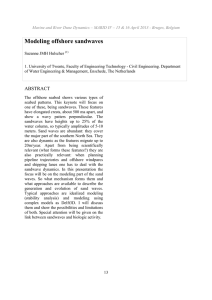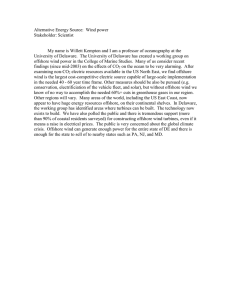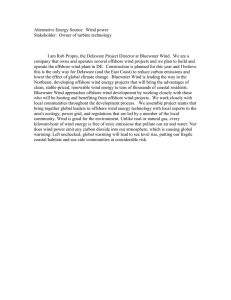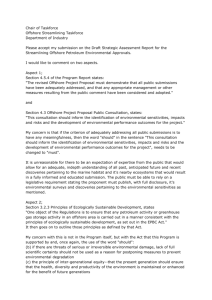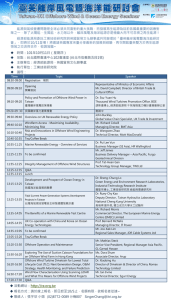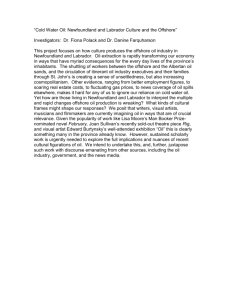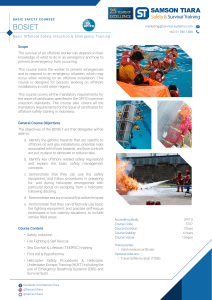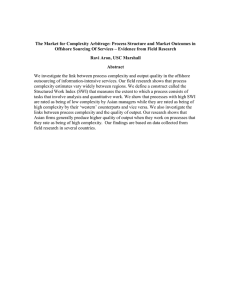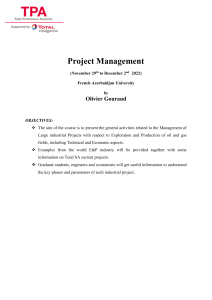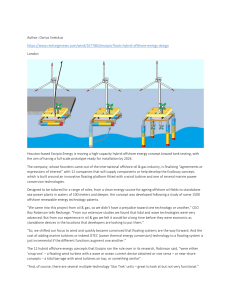Abstract Offshore engineering is a relatively young, extremely varied and remarkably...
advertisement
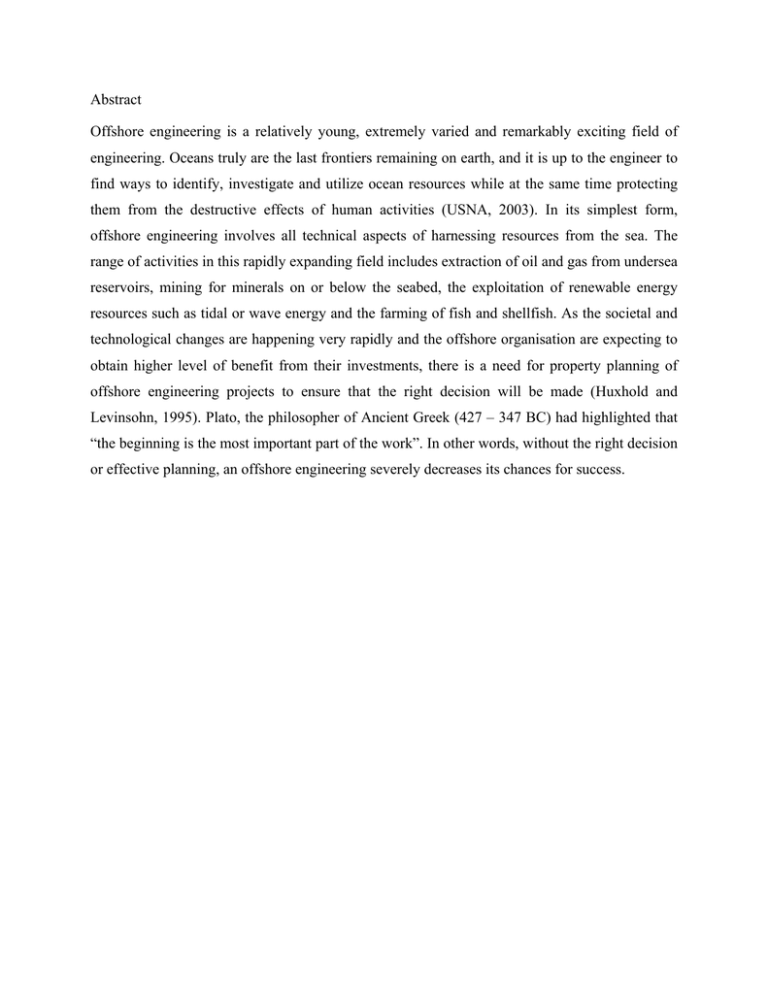
Abstract Offshore engineering is a relatively young, extremely varied and remarkably exciting field of engineering. Oceans truly are the last frontiers remaining on earth, and it is up to the engineer to find ways to identify, investigate and utilize ocean resources while at the same time protecting them from the destructive effects of human activities (USNA, 2003). In its simplest form, offshore engineering involves all technical aspects of harnessing resources from the sea. The range of activities in this rapidly expanding field includes extraction of oil and gas from undersea reservoirs, mining for minerals on or below the seabed, the exploitation of renewable energy resources such as tidal or wave energy and the farming of fish and shellfish. As the societal and technological changes are happening very rapidly and the offshore organisation are expecting to obtain higher level of benefit from their investments, there is a need for property planning of offshore engineering projects to ensure that the right decision will be made (Huxhold and Levinsohn, 1995). Plato, the philosopher of Ancient Greek (427 – 347 BC) had highlighted that “the beginning is the most important part of the work”. In other words, without the right decision or effective planning, an offshore engineering severely decreases its chances for success.
